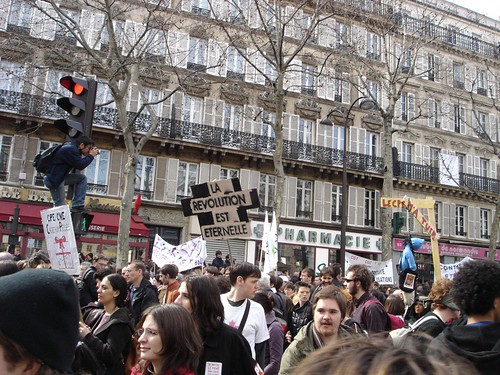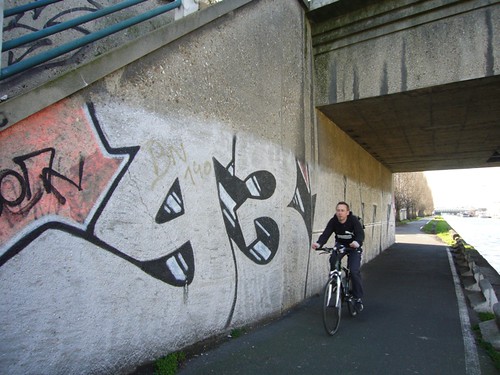Category: "Oslo"
25/07/08
High summer
It’s high summer and hot, and I don’t feel like doing what I’m supposed to do (I’m supposed to write a book review on Being a Hindu in Oslo.) High summer makes me melancholic. At least in one area of life I see the glass as half empty, and that’s when it comes to summers. The Norwegian summers are so short, that for half-empty-glass persons like myself, it’s only really May and the beginning of June one can enjoy fully without a bittersweet aftertaste of “soon it’s over…”. July in Norway is the time for 3-4 weeks of general holiday, and Norwegian workplaces, public offices and roads and streets (where there aren’t tourists) are as empty as they are in August in Paris or Athens.
The idea and implementation of paid holidays are at least as old in Norway as it is in France. However, I didn’t hear and care about the struggle for paid holidays before I lived in France in 2006 during the 70th anniversary for the left wing coalition Le Front Populaire. They lasted for only one year, and I think – as with many things in France – their symbolic importance outclass their actual political relevance. The film La vie est à nous (The life is ours, or The people of France) by Jean Rénoir from 1936 documents the life under The Popular Front, and the photographer Willy Ronis documented the first paid vacations, together with other famous photographers. I can’t think of any social democratic reform which is really celebrated here in Norway. And it’s not until confronted with the surprise of non-European visitors I find it strange that the country slows down and the functions close off to a minimum during July. Of course, it’s the general holidays!
(I’m hooked on the page-turning writing of Balzac at the moment – perhaps another reason why my book review isn’t progressing as fast as it should – and from his description of political and social divisions and hierarchies in early 19th century France, I get a clearer understanding of why social reforms have become such potent political symbols.)
It’s already the end of July, and in mid August already the summer is waning up here in the North. I’ve never mind going to school and I even love my job, but the end of summer has always been such a melancholic period that I’ve already started giving it an occasional sad thought. Why can’t July have at least 8 weekends? Well, it’s time to go back to the book review and get done with it. Afterwards, I’ll let myself start contemplating on the epistemological reasons behind why my fieldwork in Paris has started to get a rosy shade after having been left mostly in peace in notebooks and videos for a year.
—
Link to Burma Shave by Tom Waits (whom the new opera house said no thanks to this July!!!) – no much to do with this post, everything to do with summer moods
08/09/07
Existence! Resistence! ...eh back in Oslo

4th of April 2006, from one of the many demonstrations against the new labour law
It’s almost two months since I left Paris and time is overdue to get going with the second phase of this blog. One thing is certain; one will always have Paris, but for the time being it will be a long-distance relationship, slowly withering into a mythical landscape which hopefully will help me making some anthropological sense of it. (A landscape I hope will be fuller of poetry and revolt, than social organisation, cultural artefacts and postcolonial theory :-) ).
21/01/07
Sunny Sunday – cycling and les techniques du corps

Cycling in the banlieues, neuf-trois (93)
Many months ago, I mentioned that I wanted to write about cycling in Paris versus Oslo, from the perspective of Marcel Mauss’ techniques du corps (available for download in French here). I’m reminded of this old classic each time I go from my Norwegian bike to my French one. Most bikes in Norway have an extra angle on the handle, putting it more in front, thus making the cyclist lean more forward. In Paris, the cyclists sit with their back straight. The majority of bikes in Oslo are some kind of – rather fancy – sport bikes. In Parisian streets, the sport bikes are rare, and you see men and women cycle on anything on two wheels – men on what usually is considered a woman’s bike are for instance not unusual. (And sure, after having my foldable, and expensive indeed, bike stolen after just a couple of months, the last thing I want is a new fancy looking one. What I’ve got now is a cheap retro looking inconspicuous one, – which a friend immediately condemned as bourgeoisie-looking. My only justification was that it was the cheapest I could find.)
29/08/06
Back home part 2 – presenting my project so far (part 1)
Each time I tell about my fieldwork, I end up saying different things to different people, and usually I feel that it turns out quite messy, whatever I say. That was certainly the case when I tried to sum up the main points to my supervisor. So before my first seminar presentation (in front of a small multidisciplinary audience), the time had come to structure all I had experienced neatly into a comprehensible – and hopefully quite comprehensive – format.
My presentation was almost purely empirical, as I’ve not been reading much else than newspapers the last 9 months. The structuring principle I chose was to first give a socio-political overview of the bigger social events that took place during my fieldwork (October 05 to July 06), before I shifted to a more concrete micro focus on what and whom I’ll focus my research on (due to a need to anonymize at the web, I’ll be a little less concrete in this English version). I see the major socio-political events as forming a backdrop to my ethnographic micro focus, which – I hope – in turn can contribute to the understanding of these larger events. The first part of this post gives an English version of the first, events focuses, part of my presentation. The next part moves on to the micro focus, with a few words on my intended comparison with London as well as an attempt to sum up some of the comments I got after my presentation.
This is roughly what I said:
28/08/06
Back home part 1 – blogging continues
Since October 2005, I’ve been blogging from my fieldwork experiences right amongst the Parisians, but from now on this is - hélas – no longer the case. I’ve returned to Oslo with all my fieldnotes, photos, impressions and sentiments, and after living and working autonomously for 10 months, I’m now trying to reintegrate into the office environment (as well as my Oslo life). Since my intention with this blog has been to document not only how my fieldwork developed, but also the rest of the research process, I’ll try to keep on blogging from the office.

